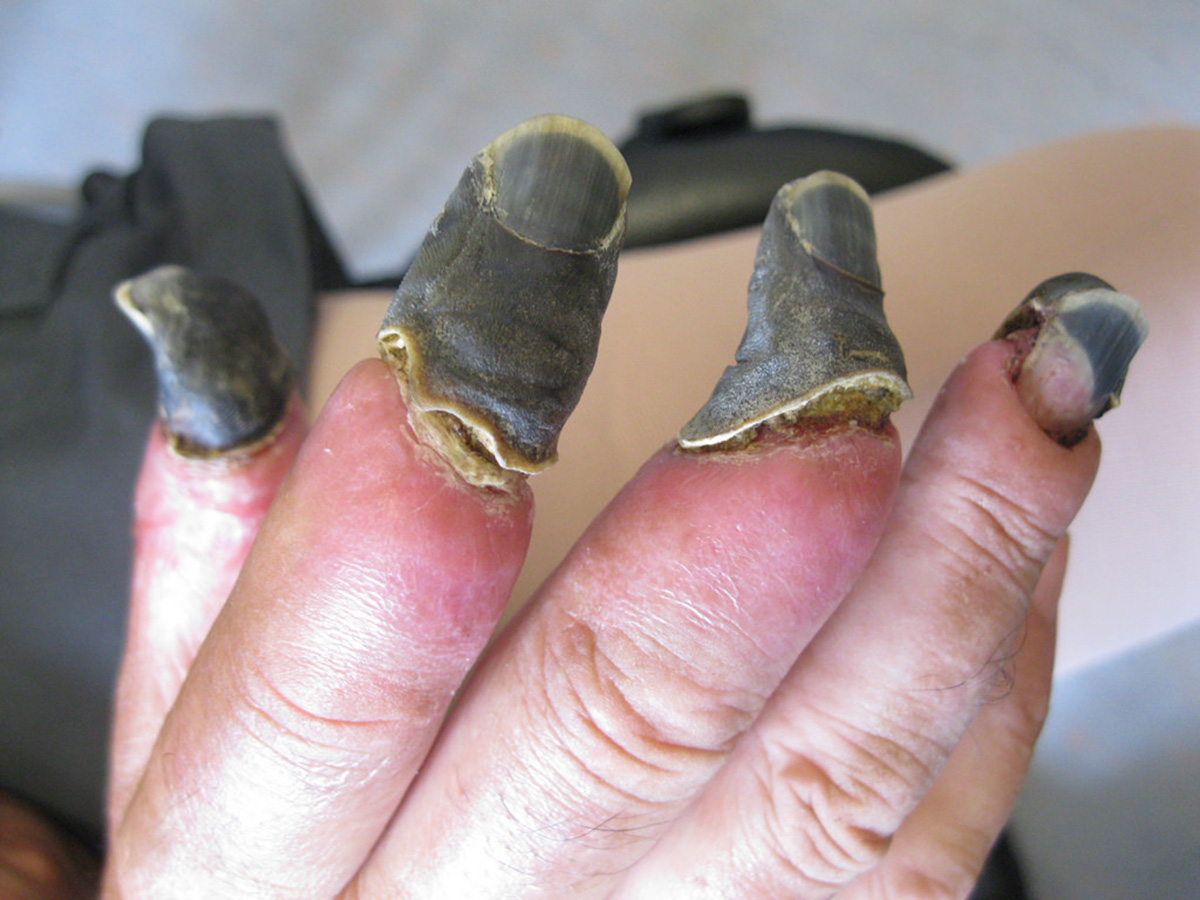Table of Contents
Even when aggressive treatment beats the infection and hospital care stops systemic inflammation, sepsis patients are not out of the woods. Most people who survive sepsis have to go back to the hospital for treatment of severe inflammation one or more times during next year.
- "Mild to moderate" sepsis patients have to spend, on average, 16 days in the hospital in the first year after successful treatment.
- "Severe" sepsis patients have to spend, on average, 38 days in the hospital in the first year after successful treatment.

Moreover, the risk of death of successfully treated sepsis patients remains higher than otherwise expected for at least two years. Over 45 percent of people of are treated for sepsis and discharged from the hospital will die in the next two years. No matter what the reason they are admitted to the hospital (heart attack, cancer, or injury for example), they are 20 percent more likely to die of that condition than someone who has not had sepsis. They are also more likely to die than people who suffer inflammatory conditions not caused by infection.
READ Sepsis: What You Need To Know
What can sepsis patients do to stay alive? There are things that doctors just aren't taught to think about.
- When you have been in bed with sepsis for a long time, your muscles get weak. As you feel better and start getting around more, not all of your muscles recover at the same rate. You need to be careful to avoid falls for a long time after your hospital stay. Even a year out, the more mobile you become, at least at first, the more accident-prone you become. Falling flat on your face on concrete, for example, can be just as serious as sepsis.
- IV antibiotics devastate the probiotic bacteria in your digestive tract. You almost certainly will be told to take probiotic supplements to restore them (and if you aren't, you should ask why). However, no supplement replaces all of your normal probiotic bacteria. As a result, you are likely to have problems with constipation (because there aren't enough bacteria in your gut to form stool, which is 1/3 bacteria) and diarrhea (because the new bacteria you are getting from your supplements fight the bacteria that survived antibiotic treatment). You will almost certainly need to be careful not to overeat (don't celebrate your freedom from hospital food with excess), and you may find you are suddenly sensitive to wheat, meat, tomatoes, citrus, coffee, pineapple, tropical fruits, and/or fish. Eat sparingly until you know you can tolerate old foods.
- Chronic infections tend to "wear out" your immune system so that you become prone to different chronic infections. This is not necessarily a life-long problem. In time, usually after a year or two, your body's ability to make red and white blood cells may recover. In the meantime it is important to avoid new infections by washing your hands frequently, by washing your clothes and bed linens frequently, and by getting any immunizations you may need, or avoiding public contact during flu and colds season.
If you have not had sepsis, you can take steps to reduce your risk of developing it.
Getting your regular flu shots, pneumonia shots, and other boosters that help prevent infections is a good start. If you get a small scrape or cut, disinfect it regularly while it heals and keep a close eye on the wound. When you have an infection, you can help to catch sepsis early if it does develop by looking out for the symptoms and seeking immediate medical attention if you have them.
- Prescott HC, Osterholzer JJ, Langa KM, Angus DC, Iwashyna TJ. Late mortality after sepsis: propensity matched cohort study. BMJ. 2016 May 17. 353:i2375. doi: 10.1136/bmj.i2375. PMID: 27189000.
- Prescott HC, Langa KM, Liu V, Escobar GJ, Iwashyna TJ. Increased 1-year healthcare use in survivors of severe sepsis. Am J Respir Crit Care Med. 2014 Jul 1.190(1):62-9. doi: 10.1164/rccm.201403-0471OC. PMID: 24872085.
- Photo courtesy of denn: www.flickr.com/photos/denn/4311117490/
- Photo courtesy of jlcambell104: www.flickr.com/photos/104346167@N06/16916332265/
- Photo courtesy of jlcambell104: www.flickr.com/photos/104346167@N06/16916332265/

